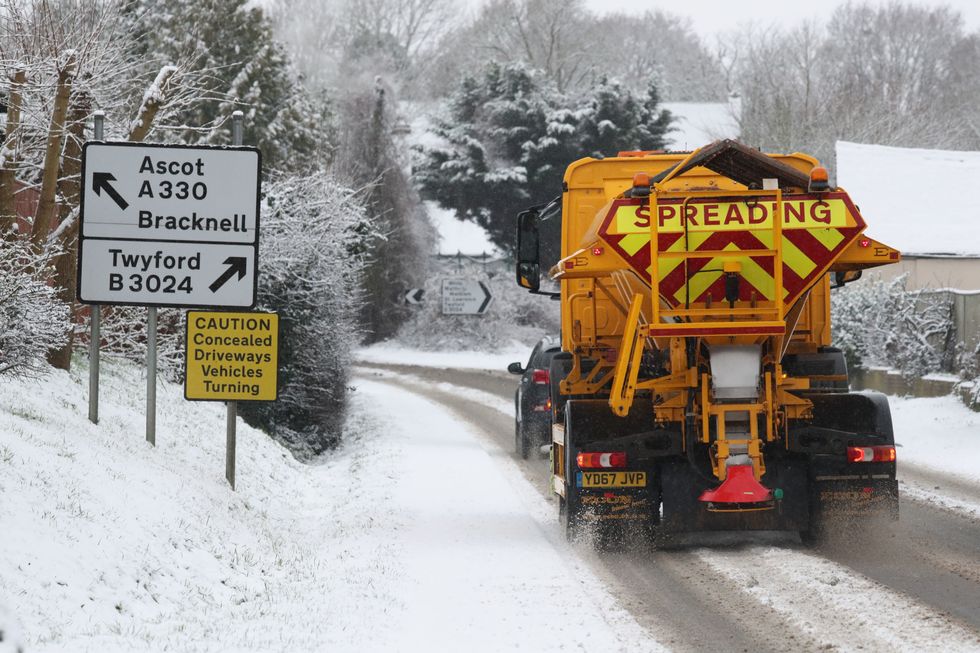Motorists will see changes on the roads over the coming months
GETTY
Some gritting lorries will be seen on the road even if temperatures remain high
Don't Miss
Most Read
Trending on GB News
Drivers could see major changes unveiled over the coming weeks and months as organisations prepare for weather conditions to get worse.
On Sunday, October 1, National Highways officially switched to its autumn and winter operations despite the mild weather conditions.
While the majority of Britons are unlikely to see any gritters or other National Highways equipment on the roads anytime soon, it is preparing for temperatures to drop.
Whenever the surface of the road drops below one degree Celsius, moisture can be present to form ice, requiring the roads to be gritted.
WATCH NOW: National Highways targeting drivers
National Highways and experts from the Met Office and MetDesk will be monitoring weather forecasts to prepare for any changes in the condition of the roads.
Darren Clark, Severe Weather Resilience Manager at National Highways, said: “October is always an important month, giving us the opportunity to test and refine our plans before severe weather conditions arrive later in the season.
“We operate a well-established daily routine. From October 1, we receive forecasts and updates at various stages every day during the autumn and winter period.
“Our decision makers will meet and decide the course of action – even if it is to simply confirm ‘no action’ amid warmer conditions.”
During October, a handful of motorists may see gritters on the road network, with drivers doing “dummy runs” to familiarise themselves with the route, although without any salt.
This is done to allow the operators to get used to driving the larger vehicles again and learn key routes without any issues.
Darren Clark also called on motorists to play their part in being prepared for the cold weather and changing road surface.
With the new autumn and winter measures, National Highways vehicles will be consistently maintained and serviced to ensure they are ready for when temperatures drop.
Air temperatures do not determine when roads are salted, with the Government-owned company only salting roads when there is a risk of ice forming.
Abigail Oakes, Senior Account Manager at the Met Office, said the relationship between the two organisations was vital to ensure safety on the roads.
She added: “We are delighted to continue our close working relationship with National Highways as we head towards the winter period.
“Our staff, be that meteorologists embedded alongside the National Highways team in Birmingham during the autumn and winter, or Met Office staff working from Exeter to deliver and support throughout the year, are proud to continue this partnership, which allows for the best possible support for road users during periods of severe weather.”
To deal with the incoming winter weather, drivers are being urged to use the acronym TRIP to get used to the colder temperatures.
This includes topping up important fuel and oil levels, resting every two hours, inspecting tyres and preparing for different weather conditions.
LATEST DEVELOPMENTS:

Gritting lorries could be seen on the roads once temperatures fall
PA
As part of the preparation, National Highways suggests that drivers put together a winter weather kit including anti-freeze and boots.








